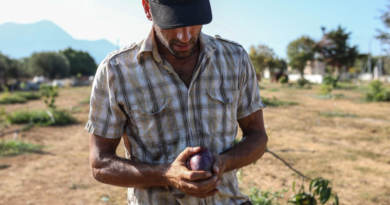A 'skimpflation' plague took over supermarkets in 2023 with consumers saying products are smaller and sometimes worse quality for the same price—if not more
U.K. shoppers are reporting something unusual at the checkouts: Their carts look less full, and the items aren’t of the same quality—but the total is the same. That’s because “skimpflation” and “shrinkflation” have become trends in 2023—particularly when it comes to chocolates, crisps, and alcoholic drinks.
In August, over half of British consumers noticed their food, drink, and household purchases were of a lower quality but with no price reduction—known as “skimpflation”—according to data from Barclays published Friday. Shoppers noticed particular downgrades in quality when it came to clothing, toiletries, and cosmetics.
On the other hand, “shrinkflation” refers to a reduction in the volume of product—or of key quality ingredients—a trend 76% of British shoppers reported in September. They saw this most notably in chocolate, biscuits, and snack products, which still cost the same, if not more.
Despite these trends, the survey—which looks at card spending from the start of the year until Nov. 25—found people spent 4.1% more on a year-on-year basis in 2023—down from last year’s 10.6% increase.
This difference is explained by Brits scaling back on dining out and garment shopping due to economic pressures and as a way to offset high energy bills.
And while people pulled their purse strings tighter for some types of spending, there were other categories they spent more on. These, unsurprisingly, included grocery stores or supermarkets thanks to food inflation.
Moreover, deal-thirsty consumers sought out discount supermarkets more this year than ever before, Barclays’ data shows.
“Discount supermarkets performed particularly well, accounting for 15.5% of all grocery spending—an all-time high, up from 14.5% in 2022—as savvy shoppers looked for ways to reduce the cost of their weekly shop amid rising prices,” the British bank said in its Friday report.
Some of the biggest consumer good conglomerates, including Unilever and Nestlé, have been on the receiving end of accusations that they’ve done little to make products affordable.
In France, a group of big retailers and producers have agreed to hit pause on price hikes, if not slash them, to help quell the impact of inflation. French supermarket Carrefour went a step further by slapping “shrinkflation” labels on goods that are offering lesser quantity than they did before—that includes the likes of Lindt chocolates and PepsiCo’s Lipton iced tea.
The silver lining
The loss for restaurant and shopping business has resulted in gains in travel and entertainment spending, the report adds. The past year marked some of pop culture’s grandest events in recent memory—from the so-called “Barbenheimer” release over the summer, which drove scores of people into cinemas and grossed $2 billion in global box office collections, to Taylor Swift’s Eras Tour, which earned her billionaire status in October.
At-home entertainment also received a boost through 2023 with takeaway food and streaming services in high demand. Brits also spent more on going to pubs relative to restaurants, pointing to an urge to balance socializing with limited spending. The same rationale drove the “lipstick effect” in the self-care and beauty segment, as people prioritized smaller indulgences over big-ticket purchases.
“Brits cut back on new clothes, eating out, and home improvements amid rising inflation and household bills. However, consumers continued to prioritise moments of joy and shared experiences, boosting travel, entertainment, and pubs and bars,” the Barclays report said.
Looking ahead, these habits could be set to continue. Inflation in the U.K. has cooled down in recent months but still remains much higher at 4.6% compared to its 2% target. The economy shrunk in the third quarter, stoking recession fears as the economy struggles to grow.
From the demand perspective, though, victories in cooling inflation could lead to lower interest rates next year, easing the pressure on households and possibly galvanizing the country’s growth rate. But the true impact of these economic trends on consumer spending remains to be seen.
“We expect to see the Bank of England start easing interest rates from the middle of the year [2024], and in fact, we’re already seeing mortgage rates come down in anticipation. This is as the speed of price rises slows, which should continue to provide at least some boost to the spending power of people who have been squeezed through the cost-of-living crisis,” Jack Meaning, Barclays’ chief U.K. economist, said in a statement. “2024 will be a year of transition, from headwinds to tailwinds, but come next December we should be able to toast the New Year with more festive spirit.”




